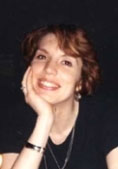'Political Correctness Constrains Researchers'
From July 26th - 30th the VIII International Council for Central and East European Studies (ICCEES) Congress took place in Stockholm. The event takes place once every five years and brings together researchers from Russia and East Europe. This time 14 teachers and researchers from the HSE took part in the Congress, the largest delegation from one institution at the forum. Some participants of the Congress told us about the event.
—Please tell us about the programme, presentation topics and specifics of the Congress.
.jpg) |
| Andrey Yakovlev |
Svetlana Barsukova, Professor at the Department of Economic Sociology:My impression was that about eighty percent of reports at the Congress were about Russia, and apart from Russians, those presentations were delivered by researchers from Japan, Korea, France and the USA. At our session I was the only participant from Russia, but all the reports on history, political sciences, economics, literature and sociology were based on Russian sources. For example, after listening to a report on the poetry of Brodsky, I understood why I don't like his poems. Generally, as it seemed to me, the most interested and largest audiences gathered at sessions and roundtables on the political processes in Russia, which is quite understandable. Sometimes I felt like I had traveled back to the 1990s with their calls to build a market economy and democracy and detailed explanations about democratization and market relations. One of the reports about modernization - by the way, very warmly received by the audience - was accompanied by a slide show which could have illustrated absolutely any reform - from those in ancient Egypt till Perestroika. I also heard several times that the Russian people have not justified the hopes that were put on them. There were many presentations, some interesting and some clearly weak. But this is normal for a congress of this size.
Elena Shomina, Deputy Head of the Department of Local Administration:I can't disagree with my colleagues in their evaluation of the International Congress. Sometimes I felt that the Congress was too broad, almost about nothing, at least for me, a researcher in the sphere of housing. But the variety of its sessions gave the opportunity to meet new colleagues and look at similar problems from the perspective of other sciences. The Congress, undoubtedly, gives the opportunity to take a broader look at the problems facing us and of course stimulates us to deepen our research work.
There also were some disappointments. I saw a book on sale by a young colleague of mine from Helsinki on the issues of housing partnerships in Russia, which I reviewed a year ago, but unfortunately my monograph entitled Residential Renters - our ‘Housing Minority'which was published by the HSE Publishing House, was not on sale. It is a pity that books by our Publishing House were not available at the Congress. I am sure they would have been in demand, since many participants of this Congress have a good command of Russian.
—How did the Congress programme reflect the level and topicality of research on Russia and Eastern Europe?
 |
| Svetlana Barsukova |
According to what I saw, some international colleagues are carrying out Russian research due to, among other reasons, intellectual censorship in their home countries. I asked one Swedish researcher who has received a grant for studying informal practices in Russia, why he was not studying informal practices in Sweden. He said that it is not customary in his country to criticize your homeland using taxpayers'money. Generally, it seemed to me that political correctness closes many areas for discussion, constrains researchers and forces them into a certain way of thinking.
A. Yakovlev:The attitude and interest towards Russia are constantly changing. But there is a certain logic here. For example, for philologists and historians everything stays quite constant:there are no new facts, a specific scientific language has formed - that's why experts in those fields are moving forward in a predetermined way. Big changes are taking place in economics and political sciences. And if we remember that the Congress grew out of sovietology with all the attendant consequences, this process is a kind of professional growth. Now there are less sovietologists and more professionals in economics, political sciences and sociology. The perception of Russia is changing and Russian participation is growing. This, certainly, affects the whole image of the processes going on in our country.
—What were your sessions about?
.jpg) |
| Elena Shomina |
Leading experts from Sweden, Great Britain, Australia, Finland and France took part in our session.
S. Barsukova:Our session was about patriotism. Since no one really knows what it is, I spoke about how patriotic appeal helps food market entities to implement their interests, gives context for lobbying and facilitates government support. Two other reports analyzed patriotism in the context of the Orthodox movement and national self-identification of one of the diasporas in Russia.
A. Yakovlev:We presented work which was developed by the HSE Institute of Enterprise and Market Analysis over a long period of time. It's about the problems of corporate governance, state purchases and relations between business and government. All our presentations provoked a lively interest and response from the audience.
.jpg) |
| Anastasia Tumanova |
For me, as a lawyer, it was interesting to attend sessions devoted to the realization of human rights and freedoms, relations between society and the state in contemporary Russia, as well as interpretations of human rights by Orthodox churches of Russia and EU countries.
—When and where will the next ICCEES Congress take place?
A. Yakovlev:The next congress will take place in Tokyo in 2015, and it will be the first congress organized outside Europe and the USA. This demonstrates the changing geopolitical conditions in the world and the clear trend of growth of interest towards the Asian part of the CIS.
Lyudmila Mezentseva, Oleg Seregin, Andrey Shcherbakov, HSE News Service

